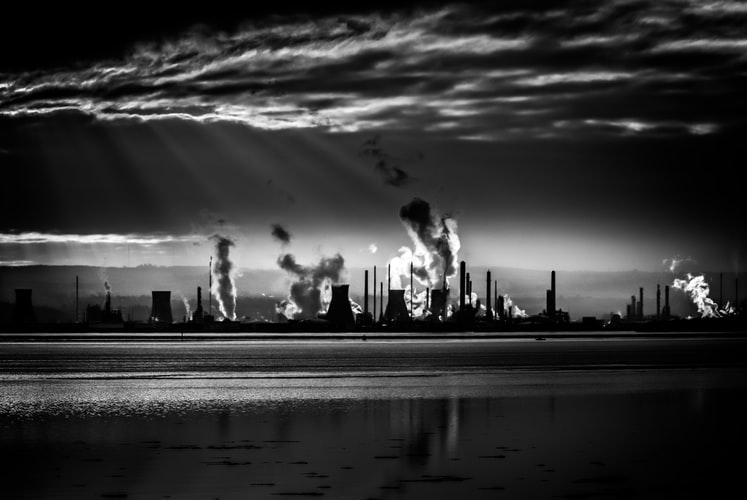Soil Pollution Law: Compliances for Business
Soil Pollution Law: Compliances for Business

This week we dedicate the article to soil pollution, a field in which over the past years China has adopted relevant instruments such as the plan for prevention and control of the soil pollution, including its first Soil Pollution Prevention and Control Law, and other regulatory mechanisms which deserve serious attention.
RELEVANCE
Controlling soil pollution is essential for water quality. It also involves the achievement of other mayor goals and policies, for example, reduction of residues by recycling of waste enables the utilization of their calorific value. How? Through the classification and segregation of organic waste from other forms of waste. Incineration plants will no longer need to co-fire with fossil fuels such as abundant but dirty coal or cleaner but not always available natural gas. (link to China and the environment II).
Currently, China is paying more attention to the responsible use of its available natural resources, particularly soil and water, which is translated in recent laws and regulations.
NEW RULES
The CPC Central Committee and the State Council have attached great importance to this subject. On May 28th, 2018, the State Council published the Action Plan to prevent and control soil pollution.
Several months later, on August 31st, the Standing Committee of the Thirteenth National People's Congress of the People's Republic of China approved the Soil Pollution Prevention and Control Law, which entered into force this year, in January 1st, 2019.
These new instruments represented one of the most significant improvements in China´s approach to soil management. The new regulations intend to order and manage the use of soil, including measures and standards regarding their different uses.
- China’s Soil Pollution Prevention and Control Law provides guidance and systematic mechanisms for investigating, preventing and clean-up intended for soil plans. National and local standards, general surveys, and monitoring are also contemplated in the corpus of the Law.
- Implications for business, it also creates obligations and, most likely costs for companies, who may require to investigate soil pollution status, risks (including the liability to manage and control risks). Provisions, however, are still ambiguous in certain areas.
- Manufacturing companies and land use rights holders must take effective measures to prevent and reduce soil pollution. They will bear liability for any soil pollution they generate.
IMPLEMENTATION
During the first year of the Law implementation, the relevancy of the impact has been different depending on the provinces and areas applied. According to article 58, the State shall implement the catalog for the management and control of soil pollution risk and remediation system. Concerning land for construction use, the catalog still shall be developed, disclosed to the public under request, and updated in due course based on the information of risk management and control, as well as remediation by the ecological and environmental department of the provincial level of government in conjunction with the natural resources department.
A&Z environmental attorneys have identified that up to November 29th, more than 14 provinces including Zhejiang, Beijing, Hunan and Sichuan have already established the catalog for soil remediation. Among those areas, for instance in Hunan, there are 9 sites which are old plants for the chemical industry or non-ferrous metal industry producing some main pollutants such as cadmium and arsenic.
New provisions force to a fundamental reassessment of many ongoing activities. Production conditions should cover compliance with environmental standards to avoid the risk of penalties and other costs later on.
According to the Law, Article 94, where, in violation of this Law, a person responsible for soil pollution, or a land usufructuary, commits any of the following acts, the ecological and environmental department of the local government, or any other authority in charged, with the duty of supervision, and administration of prevention and control of soil pollution shall order the violator to take corrective action and fine the violator not less than RMB 20,000 nor more than RMB 200,000. In case the polluter refuses to do so, then the authority could fine the violator not less than RMB 200,000 nor more than RMB 1,000,000, in addition, to designate another person to render the performance for the polluter at the expense of the polluter. Furthermore, the directly responsible person in charge, or any other directly responsible person, could also be fined not less than RMB 5,000 nor more than RMB 20,000.
If a person responsible for soil pollution, or a land usufructuary, commits any of the acts indicated below and has serious circumstances, the supervisory authority may refer the case to the public security authority or, more seriously, the directly responsible person could be detained from 5 to 15 days. Acts following into this situation are as follow:
- Failing to survey soil pollution status as provided;
- Failing to assess soil pollution risks as provided;
- Failing to take risk management and control measures as required;
- Failing to implement remediation as required;
- Failing to separately commission a relevant entity to assess the effect of risk management and control, as well as remediation after these activities are completed.
While the new Law presents strictness in certain areas, it also contains ambiguity in the provisions. The Law, however, intends to avoid the undefined liability from previous regulations, which was not robust enough to identify responsibilities against the possibility of non-compliance. Currently, the Law also recognizes subsidiary responsible giving that the polluter cannot be determined. The land usufructuary shall assume tort liability as legally required if his/her fails to perform the obligation of management and control of soil pollution risk, as well as the remediation of damage to the person or property of another person.
Yet, the drafting of the law is substantially general, and still need to be implemented via effective mechanisms. Nevertheless, companies must not overlook the current Law and its provisions. For companies operating in China, they must pay attention to environmental NGOs and their demands in terms of environmental compliance concerns too. The Law advocates public participation in soil pollution management and requires disclosing information related to soil pollution. Authorities will make information available through the National Credit Information Sharing Platform and the National Enterprise Credit Information Publicity System. Lack of attention and prevention could bring economic penalizations for the companies, and even facing judicial procedures.
Case study
The cost of complainants undertakes often lengthy legal procedures. The situation is easily illustrated in recent cases.
About 4 years ago, 2015, teachers and students at Changzhou Foreign Languages School noticed a strange smell which caused headaches, skin problems and other harms. Parents of the victims strongly protested to the government for failing to provide a basic safe environment for students including the governors’ misconduct. Most of them nonetheless failed in their claims.
In April 2016, two Chinese leading environmental NGOs, Friends of Nature and the China Biodiversity Conservation and Green Development Foundation, brought a lawsuit against three chemical manufacturers responsible for historical pollution, demanding the company to de-pollute or compensate for clean-up costs.
In November 2016, Friends of Nature also took the third party “Hei Mu Dan” company and “Tian Ma Wan Xiang” Construction Company to the Changzhou Intermediate Court, claiming the secondary pollution of air and soil. The controversial thing is that Changzhou Environmental Science Association was also caught to be liable for the impact of the remediation activity. After March 2018, when the exchange of the evidence happened, the plaintiff applied to include two more companies who conducted the supervisory work. The first instance of this case was on the hearing last November 27th, 2019. The case is still pending.
Lessons learned
Considerable environmental risks may occur when companies failed to take action, particularly with the absence of a long-term responsibility approach. The nature of soil remediation liability is somehow similar to the U.S. Superfund Law system, which can be defined as strict liability, retroactive and joint liability.
Environmental requirements are becoming a critical aspect to be considered by the management of the companies, (link to China and the environment I). Companies’ management personnel must be familiar with environmental regulation and liabilities as a fundamental part of their work responsibilities regarding the protection of both business operations and investments.
Industrial decisions and its plans require to go through an environmental assessment before they are adopted. Soil classification, transport, waste management, and water management could come to significantly affect the organization's sustainability and viability, or enable the development of new business opportunities within the traditional sectors or in new sectors (tourism).
How to avoid risks? What factors do you need to consider in your business plan or in the selection of a new site to develop the company´s activity? How to include environmental costs while investing or purchasing land? These matters, among many, are in which A&Z outstanding environmental attorneys can help you.



